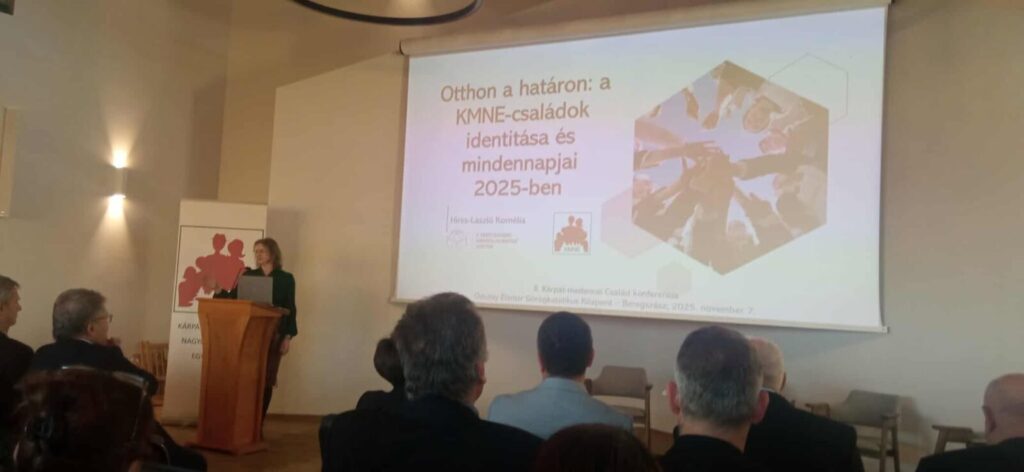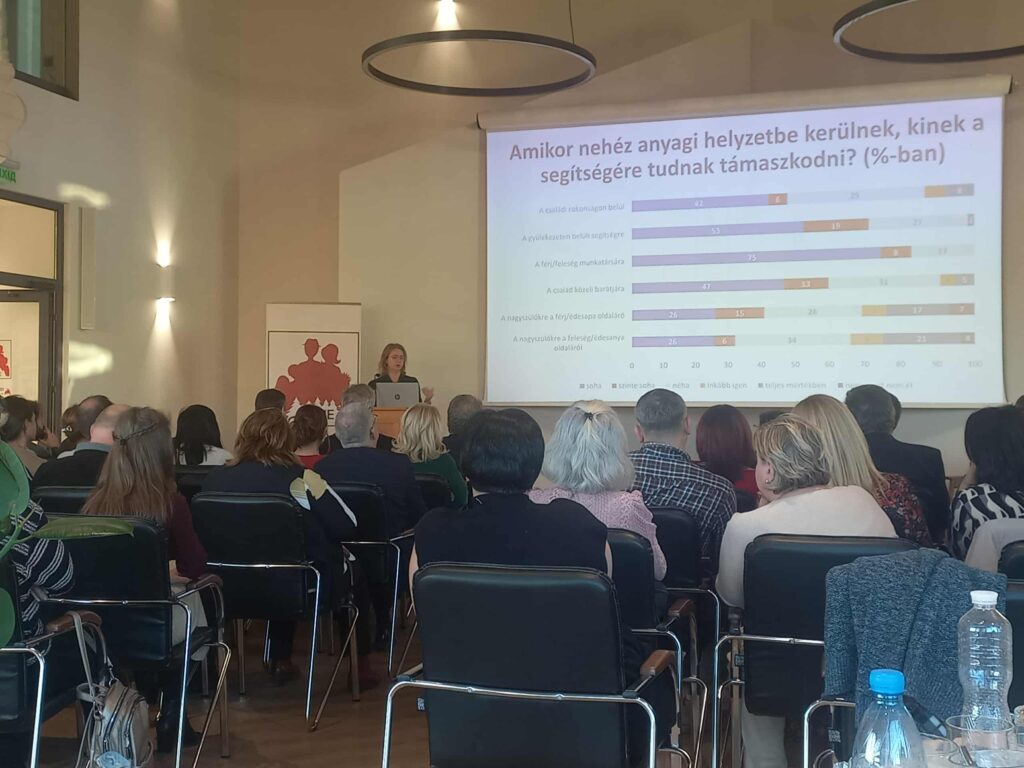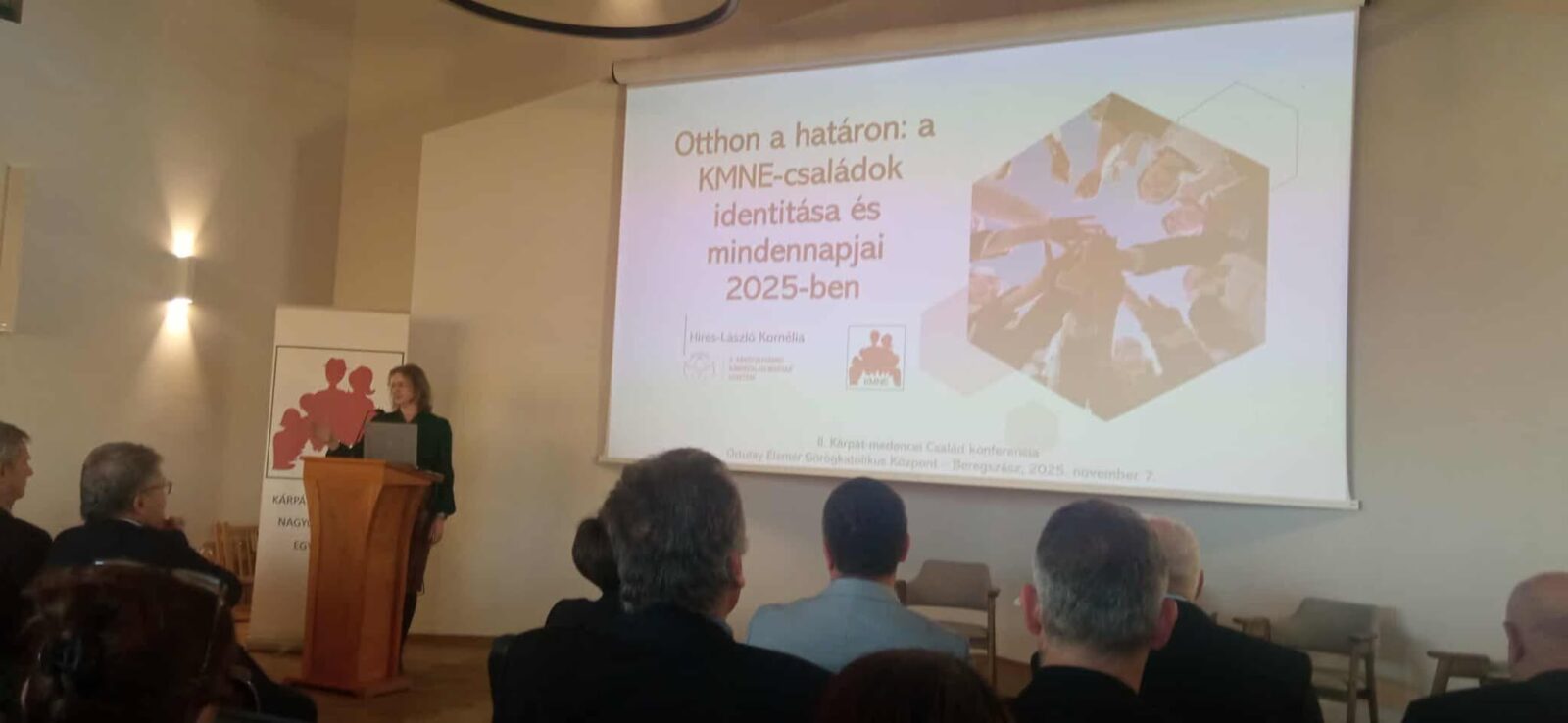Kornélia Hires-László, Director of the Hodinka Antal Linguistics Research Center, presented the results of her latest research at the 2nd Carpathian Basin Family Conference, held on 7 November 2025 in Berehove, at the Elemér Ortutay Greek Catholic Center. The event focused on exploring the family life, values, and identity patterns of the Hungarian communities in the Carpathian Basin, while providing a professional forum for experts and organizations engaged in family policy and community development.

During the plenary session, Hires-László Kornélia delivered a presentation entitled “At Home on the Border: The Identity and Everyday Life of KMNE Families in 2025”, in which she summarized the findings of a survey conducted among members of the Transcarpathian Association of Large Families (KMNE). Out of nearly 800 active member families, 173 participated in the research, offering valuable insights into the social conditions, value system, and sense of security of Hungarian families in Transcarpathia.
The questionnaire covered a wide range of topics, including ethnic identity, language use, and religious affiliation—examining the national and denominational background of parents and children, and the languages used in everyday communication. The research also explored the role of grandparents in childrearing, as well as the extent to which families can rely on relatives and friends for support in their daily lives. Further questions addressed economic well-being, such as household income and spending patterns, the ability to meet basic needs, and the sources of financial assistance available to families facing hardship.

In addition, the survey examined marital conflicts and the strategies families employ to overcome them. The responses revealed that the intention to remain in the homeland remains strong despite the challenges of war. Although participants reported a decline in their sense of safety since the outbreak of the conflict, faith, community, and family cohesion continue to play a vital stabilizing role.
The study also investigated participation in KMNE programs and how the war has affected the frequency of family gatherings and social events.
According to the findings, faith, community, and family unity remain fundamental values among Hungarian families in Transcarpathia. Despite the war and ongoing economic difficulties, most respondents envision their future in their homeland and remain active members of their community.
Prior to the conference, the participants were interviewed live on Pulzus Radio, where listeners had the opportunity to learn about the research highlights and the conference’s main objectives.
The conference provided an excellent platform for presenting the results and contributed to a deeper understanding of the situation of Hungarian families in Transcarpathia, while emphasizing the importance of preserving cultural and national identity in the region.

